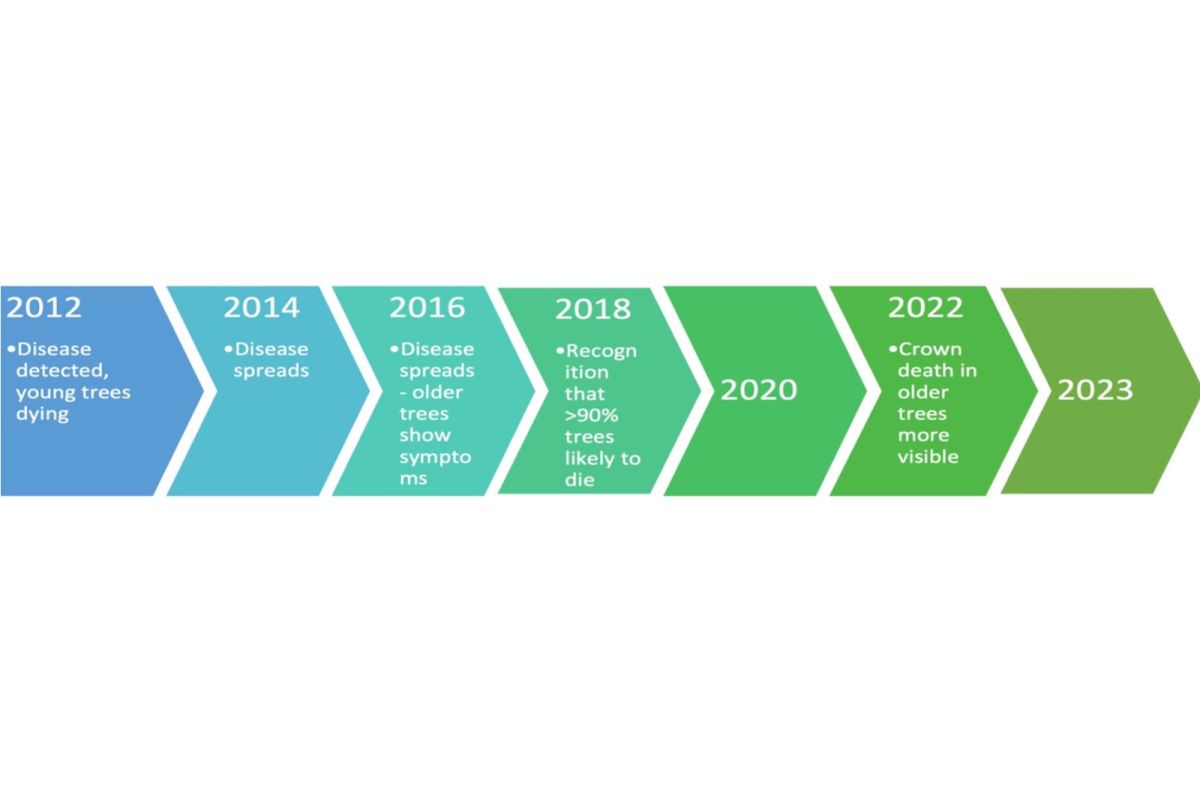Ash dieback needs to be treated as a ‘national emergency’

The much-anticipated report was commissioned by Senator Pippa Hackett, Minister of State at the Department of Agriculture, Food and the Marine (DAFM) with responsibility for land use and biodiversity in June 2023. The review group was tasked with examining existing and previous supports available to farmers and landowners with ash plantations funded under the National Forestry Programme that are now infected with the disease.
The review group, comprised of Dr Matthew Crowe, Jerry Grant and Jo O’Hara, made a series of additional recommendations, one of which calls for the establishment of a taskforce, led by the DAFM, involving a dedicated DAFM team, landowners, and forest industry stakeholders to oversee and coordinate the safe and comprehensive clearance and re-establishment of diseased plantations.
It also recommends that the taskforce would take a coordinated approach to clearance at county or regional level to increase efficiency, and that it would oversee a simplified approval process for site clearance with appropriate assessments or any other complex assessments conducted by the dedicated DAFM team. The report authors stated: “We cannot over-emphasise the need for rapid action as standing trees become more dangerous and less valuable with each growing season.”
Among the recommendations in the report:
- It should be made clearer that the cost of site clearance and regeneration should be borne by the State with any residual value from the timber remaining with the landowner.
- Re-establishment and maintenance costs should be reviewed for all ash sites, taking account of the need for more intensive and regular maintenance due to the particular challenges associated with re-establishment.
- It must be more clearly communicated that plantation owners are eligible for all available schemes in the new Forestry Programme.
- Bespoke ash dieback re-establishment annual payment is required. The payment should be consistent with the general rates available under the new Forestry Programme.
- The DAFM should explore the potential for a one-off ex gratia payment to be paid to each landowner as recognition of the absence of an effective scheme between 2018 and 2023.
- Ash die-back should be used as a learning opportunity to plan for future disease and invasive alien species risks.
- Learning from the experience of ash dieback disease, the DAFM, landowners and the wider forestindustry, must develop a new partnership and risk-sharing approach to forestry on private land.
Commenting, Minister Hackett said the DAFM is currently assessing the report recommendations, and that she is ‘committed to publishing a full implementation plan in response to the report once this work is complete’.
President of the Irish Farmers’ Association (IFA) Tim Cullinan said: “While we are reviewing the full report, the central conclusion here is that the current scheme is flawed and that farmers must be compensated for the losses they have suffered through no fault of their own.
“Farmers with ash dieback have been waiting too long, the time for talking is well and truly over,” he said.





